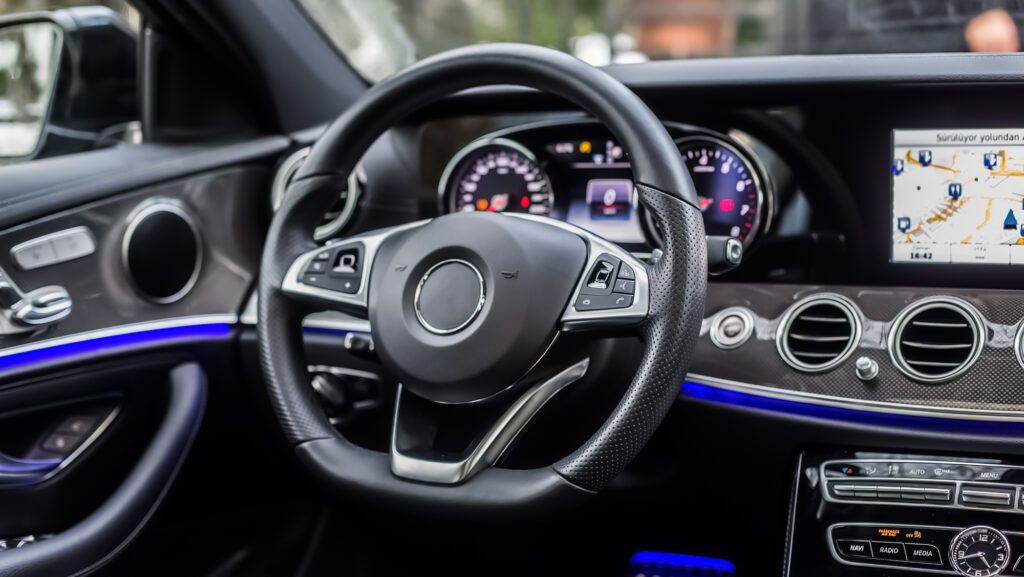Have you ever been driving and noticed a bright yellow light that reads “ABS” on your car’s dashboard? This light is known as the ABS light, and it’s one of the most important indicators on your car’s dashboard.
The ABS (Anti-Lock Braking System) light is part of your car’s onboard computer system. When this light illuminates, it notifies you that there is an issue with the ABS system. The ABS system is designed to help you maintain control of your car during hard braking by preventing the wheels from locking up. If the ABS light is on, there may be an issue with the system that could impact your safety while driving.
It’s essential to understand the ABS light meaning as it can help you maintain your vehicle’s safety and ensure that you can address any issues promptly. In this article, we’ll discuss what triggers the ABS light, what it means when it comes on, and why it’s important to take it seriously when it does. Let’s dive into the details of the ABS light and its meaning.
What Does ABS Light On Mean?
ABS stands for “anti-lock braking system” and is an indicator light located on your car’s dashboard. This light will come on when there is an issue with the ABS system. The purpose of the ABS system is to help keep your wheels from locking up during hard braking by allowing a small amount of wheel rotation as you brake.
When the ABS light comes on, it means that there could be something wrong with the system, and it needs to be diagnosed and repaired. It could be something as simple as having a low brake fluid level or a more complex issue such as a faulty wheel speed sensor or bad control module.
You will know if the ABS light is on by looking at your dash. It will typically be a yellowish color and usually has “ABS” written underneath it. When this light is illuminated, it means that there is an issue with the ABS system that needs to be addressed immediately to ensure safe driving.
If you notice that the ABS light stays lit even after you have corrected any issues, such as checking your brake fluid level, then it’s important to take your vehicle in for service right away so that the problem can be properly diagnosed and fixed before any further damage occurs.
How Does ABS Work?
The ABS (or anti-lock braking system) is an important part of your car’s safety system. It works by using sensors to detect when your wheels are about to lock up during hard braking and then applies brake pressure to each wheel separately in order to prevent a complete lockup. This helps you maintain control of your vehicle during hard braking, which can be crucial for avoiding accidents on the road.
When the ABS light comes on, it indicates that there is something wrong with the system and should be addressed immediately. The ABS system operates by reading signals from wheel speed sensors that are located inside the wheels. If one or more of these sensors have failed or become disconnected, then it could cause the ABS light to come on. Other issues, such as low brake fluid levels, faulty relays, or blockages in the lines, can also cause this light to come on.
It’s important to note that just because the ABS light is illuminated doesn’t mean that you should stop driving your car altogether – it simply means that you need to get the issue looked at and repaired as soon as possible so that the brakes continue working properly and your safety isn’t compromised.
Why Is the ABS Light On?
The ABS light coming on indicates that something is wrong with the anti-lock braking system. Here are four possible reasons why this warning light may turn on:
- Malfunctioning Wheel Speed Sensors: The ABS system uses wheel speed sensors to detect when your wheels are about to lock up during hard braking. If one or more of these sensors have failed or become disconnected, then it could cause the ABS light to come on.
- Low Brake Fluid Levels: Low brake fluid levels can also cause the ABS light to come on, as it will prevent the system from working properly. This is because low brake fluid levels can reduce pressure within the lines and result in a decrease in brake performance and safety.
- Worn Brake Pads: Worn brake pads can also affect the effectiveness of the brakes, which could lead to the ABS light turning on if there is enough wear. It’s important to replace worn brake pads as soon as possible so that your brakes remain effective and safe for driving.
- Faulty ABS Controller: Finally, a faulty ABS controller can also be responsible for causing the ABS light to come on. A faulty controller can cause issues with signal transmission between other components in the system, resulting in decreased performance or even total failure if not addressed quickly.
Is It Safe to Drive When the ABS Light Comes on?
It’s important to note that just because the ABS light is illuminated doesn’t mean that you should stop driving your car altogether – it simply means that you need to get the issue looked at and repaired as soon as possible so that the brakes continue working properly and your safety isn’t compromised.
The ABS system is an important part of your car’s safety system, but it can be overridden if necessary for safety reasons. For example, if you find yourself in a situation where hard braking is necessary, and the ABS light is on, then you will still be able to brake normally (without the ABS intervention) in order to prevent an accident. However, this should only be done as a last resort – and you should always get the issue inspected as soon as possible.
What to Do When the ABS Light Comes on
When the ABS light comes on, it’s important to take certain precautions to ensure your safety and to take immediate action in order to minimize any potential risks. Here are some important steps that you should follow when the ABS light appears:
- Safety Precautions: Reduce speed slowly, avoid sudden stops and swerves, and ensure that your vehicle is well maintained by regularly checking tire pressure and making sure all other brakes are functioning properly.
- Steps To Follow: Get your car inspected as soon as possible by a qualified professional. If possible, set up an appointment with a mechanic ahead of time; otherwise, ask an auto parts store for recommendations on who could help diagnose and repair the issue.
- Importance Of Seeking Professional Help: It’s essential to seek professional help when it comes to an ABS warning light because this system requires specialized attention as it plays such an important role in overall vehicle stability and braking performance. Avoid attempting repairs yourself or using DIY methods – instead, leave this job in the hands of an experienced technician who can address the issue quickly and accurately.
How Can One Reset the ABS Light?
Resetting the ABS light requires special knowledge and tools that only a qualified professional will possess. It’s important to look for a mechanic with experience in working on ABS systems, as they will be able to properly diagnose and reset the light quickly and accurately. In general, mechanics use devices such as OBD2 scanners to reset the ABS light by inputting codes into the car’s onboard computer system. This process may also involve clearing all trouble codes from the computer memory and performing any necessary repairs.
ABS Light and Vehicle Inspection
ABS light is an important issue to consider when it comes to vehicle inspection. The ABS system plays a crucial role in overall vehicle performance, particularly when it comes to stability and braking. If the ABS light is activated during a vehicle inspection, the outcome may be adversely affected, and the car may not pass the assessment. Therefore, it’s important to address any potential issues related to this system as soon as they come up; identifying and fixing issues with the ABS light before taking your car in for inspection can help you ensure that your motor vehicle passes all safety tests with flying colors.
Don't Leave Your ABS Issues Unchecked - Trust HEART Auto Care!
When you need ABS repair, trust the professionals at HEART Auto Care. Our knowledgeable and experienced team can provide a detailed ABS system diagnosis and complete any repairs that may be necessary in order to ensure your car is safe on the road and passes all inspections with ease. Contact us today for an appointment and put your worries to rest!
Bottom Line
Understanding the meaning of an ABS warning light is essential for any motorist on the road. This system is a vital component of overall vehicle performance, affecting car stability and braking capabilities. An activated ABS warning light is a sign that there may be a problem with the system that needs to be addressed immediately. It’s also important to take care of any issues with this system before bringing your car in for inspection, as it can drastically affect the outcome of such checks. Taking prompt action when it comes to your vehicle’s ABS light can help you protect yourself and others on the road.







